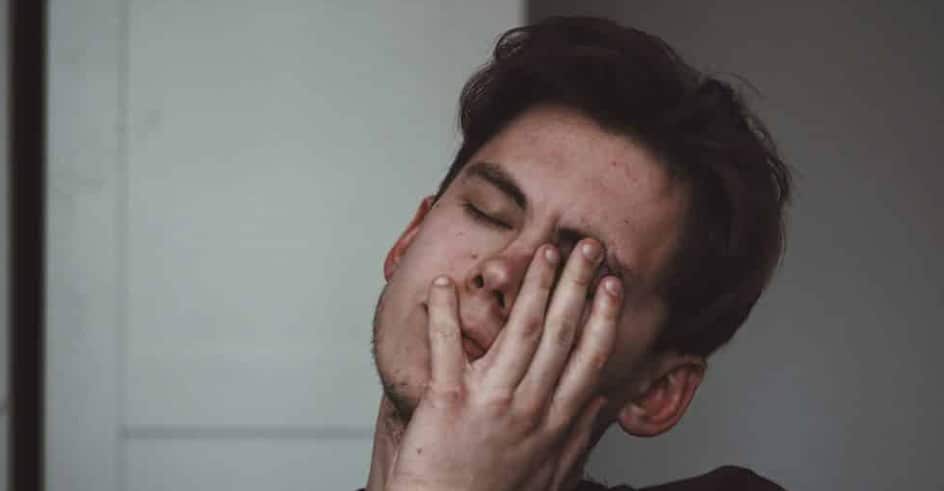




Coping with drug and alcohol addiction is difficult, and detox is an important part of the recovery process that helps people move forward toward a sober life. If you or someone you love is thinking of detoxing at home, it’s important to know that this process can be dangerous.
Read on to learn more about the dangers of detoxing at home and why you should consider doing so under the watchful eye of a professional.

Drinking excessively for a long period of time can cause a lot of problems both physically and mentally. If at some point an individual wants to quit, they might choose to do so on their own or at home because it looks easier or inexpensive. Although those reasons might sound good on the surface, detoxing on your own can cause alcohol withdrawal.
More often than not, an individual who is attempting to detox needs to do so under medical expertise to prevent withdrawal symptoms. At New Leaf Detox & Treatment, we offer detox programs that are safe and effective so that you don’t have to go through it alone.
If you decide to detox from alcohol at home, the symptoms can range from moderate to severe, and even life-threatening. Without someone there to assist you, this can lead to the need to be hospitalized, or in some cases, it may possibly lead to death.










For some, these symptoms may be extremely mild or temporary. However, others may experience a very serious condition called delirium tremens, which can be very dangerous.
For those experiencing severe alcohol withdrawal, delirium tremens may occur. This is accompanied by much more severe side effects.

Delirium Tremens is typically common in those who have been struggling with alcohol use or addiction long-term. In some cases, the help of prescription medications combined with proper medical oversight can help to prevent or manage the problem until it passes. Without the help of medication or a detox center, the dangers of detoxing at home are significant.
Opiate addiction is on the rise in the United States. In fact, the CDC found that from 1999 to 2014, opioid medication sales quadrupled, yet no change was found in the number of people who reported that they were in pain. However, the rise in opioid addictions has been significant, including overdose-related deaths.
Unfortunately, the number of Americans who die from an opioid overdose is steadily increasing. This can include drugs like oxycodone, morphine, hydrocodone, or heroin. It’s crucial that people who are attempting to overcome their addiction seek professional help in a detox or rehabilitation center.
Detoxing from drugs at home is extremely dangerous and can have serious physical and mental effects. Many people who attempt to do this home suffer a relapse, which may lead to overdose.

Some symptoms such as mild nausea or diarrhea may be treated or managed with OTC medications, but severe diarrhea can lead to other problems like dehydration. High blood pressure and a rapid heart rate can lead to a stroke or heart attack. Those dependent on opioids are almost never able to quit them without professional help.

Detoxing from drugs at home is extremely dangerous and can have serious physical and mental effects. Many people who attempt to do this home suffer a relapse, which may lead to overdose
Some symptoms such as mild nausea or diarrhea may be treated or managed with OTC medications, but severe diarrhea can lead to other problems like dehydration. High blood pressure and a rapid heart rate can lead to a stroke or heart attack. Those dependent on opioids are almost never able to quit them without professional help.
Whether it’s alcohol, opioids, or other drugs, it’s best to avoid a home detox. A professional detox center can monitor your conditions and prescribe specific medications designed to help with withdrawal, such as Suboxone, a medicine made to ease the pain of opiate withdrawal.
While some drugs like cocaine have no specific medications that can help with detox, it’s still crucial for people who want to quit to look for professional assistance. A detox center is staffed with professionals who know how to monitor people and make sure that they’re able to manage their withdrawal symptoms effectively.
With medical oversight, patients can overcome physical addiction while safely managing the side effects of drugs or alcohol withdrawal. It’s important to note that detox is just the first step in the long road to full rehabilitation and recovery. Detox should not be used as a treatment, but rather as a way to get the alcohol or drugs completely removed from the body.
Medically managed detox can help people get through the withdrawal process safely. This process usually involves three initial steps:
Patients should receive a blood test and undergo an initial assessment to determine what substances are in the body and what the next steps should be.
It's important to make sure that you are both medically and psychologically stable. This step is crucial to success, and medical professionals are there to help through counseling, medication, and other means.
During the detox process, patients will prepare to move into an inpatient or residential treatment facility. When this happens, people can begin to work on the next steps of overcoming addiction in a safe, nurturing, and supportive environment.
The dangers of detoxing at home are real, and it’s important to get the help you need rather than try to go it alone. Symptoms of withdrawal can be extremely dangerous and can also have lasting effects on your psychological or mental well-being.Medically managed detox in a professional setting ensures that you get the help needed to overcome addiction in a safe way.
For more information about our services and how we can help you safely overcome addiction, please visit our website and contact us today to learn more.
Send us your information and receive a free verification of benefits. All submitted forms or phone calls are completely confidential.
New Leaf Detox and Treatment
63 Mallorca, Laguna Niguel,
CA, 92677
866-932-0905